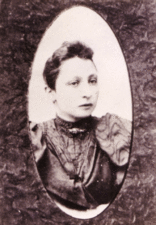Writing: Memoirs

Nima Adlerblum
Nima Adlerblum was a writer, educator, and early Zionist activist in New York, whose life began and ended in Jerusalem. She wrote widely on philosophy, education, Jewish philosophy, and American history, and also founded Hadassah’s national cultural and educational program in addition to serving as its national and cultural chair from 1922 to 1935.
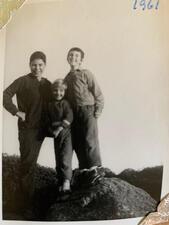
Marjorie Agosín
Marjorie Agosín is an award-winning Chilean Jewish poet, memoirist, novelist, literary critic, editor, educator, and human rights activist. Her work, which she writes in Spanish, is widely translated into English and other languages. She is a professor of Spanish and Latin American Studies at Wellesley College.
Ruth Aliav-Klüger
Ruth Aliav-Klüger was the only woman among the early members of Mosad le-Aliyah Bet, the “illegal” immigration branch of the underground paramilitary organization Haganah that smuggled Jews out of Europe and into Palestine during World War II.
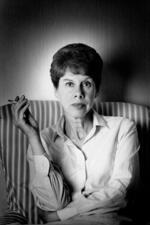
Anglo-Jewish Writers in the Twentieth and Twenty-First Centuries
Anglo-Jewish women writers have been active creators within the British literary arena since the late nineteenth and early twentieth century. The 1960s and 1970s saw the emergence of a number of Jewish female voices, although it was not until the 1990s that the works of Jewish women writers began to be recognized as part of the British literary canon. Anglo-Jewish women writers’ multifaceted perspectives are reflected in a literary production characterized by experimentation and fragmentation.
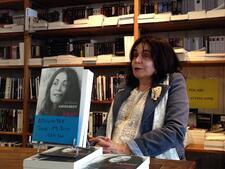
Myriam Anissimov
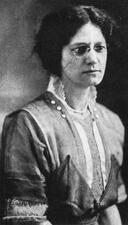
Mary Antin
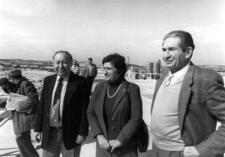
Shoshana Arbeli-Almozlino
From her upbringing in a traditional Iraqi family to her work in the Knesset and as Israeli Minister of Health, Shoshana Arbeli-Almozlino’s life spanned countries, careers, and experiences. She will be remembered as an active member of Knesset who fought for the rights of the working class and for the equal status of women in Israeli law.
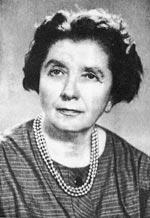
Rokhl Auerbakh
Rokhl Auerbakh (1903–1976), a member of the Polish-Jewish literary elite, ran a soup kitchen in the Warsaw Ghetto while simultaneously recording the voices of its captive inhabitants in her writing. She ultimately survived the war by passing herself off as an "Aryan," and went on to found the Department for the Collection of Witness Testimony at Yad Vashem in Jerusalem.
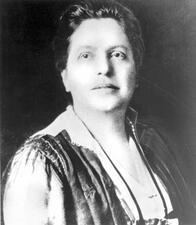
Autobiography in the United States
As the status and roles of women in American and Jewish life changed over the twentieth century, more and more American Jewish women turned to autobiographical writing as a means of documenting these changes and addressing questions of American, Jewish, and female identity. Jewish women created accounts of the immigrant experience, feminist or activist involvement, political and literary involvement, Holocaust survival narratives, as well as coming-of-age memoirs.
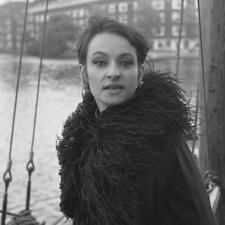
Barbara (Monique Andree Serf)
Barbara (Monique Andrée Serf) was a French singer and composer whose melancholy style rose to national significance. Born in Paris in 1930, after World War II Barbara studied music, rising to fame in the 1960s. Her Jewish identity and wartime experience as a child influenced her non-conformist persona as an artist, and through her song lyrics, she advocated for Franco-German reconciliation.

Ruth Behar
Award-winning cultural anthropologist Ruth Behar has conducted groundbreaking research in Spain, Mexico, and her native Cuba. Her innovations in cultural representation have transformed ethnographic writing and reached a broad, non-academic audience through her film, poetry, personal essays, and young adult fiction.
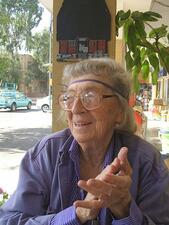
Netiva Ben Yehuda
Netiva Ben Yehuda was a Jewish-Israeli writer, poet, broadcaster, and Palmah officer. Ben Yehuda’s works surround her experiences before, during, and after her service in the Jewish underground Palmah and her dedication to enriching the lexicon of spoken Hebrew.

Rahel Yanait Ben-Zvi
Rahel Yanait Ben-Zvi was the second First Lady of Israel, wife to President Yizhak Ben-Zvi. Before and after Ben-Zvi’s tenure, she was active in the labor movement in Palestine and Israel and in the independence movement, as well as a prolific writer and recorder of her experiences in Erez Israel.
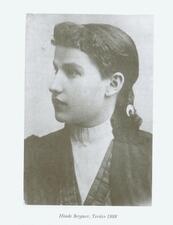
Hinde Bergner
Hinde Bergner holds a special place in Yiddish literature by virtue of the fact that her memoir of family life in a late nineteenth-century Galician shtetl is one of few extant Yiddish memoirs to describe the traditional Jewish family on the edge of modernity from the perspective of a woman. Her intimate portrayal of her life results in a valuable source for Jewish social, family, and women’s history.
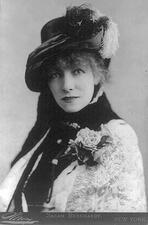
Sarah Bernhardt

Miriam Bernstein-Cohen
Miriam Bernstein-Cohen was an influential actor, director, poet, and translator in Europe and Israel. She was a versatile actor, appearing successfully both in comedies and in serious plays with the Ohel, Matateh, and Haifa Municipal Theater companies. In addition to her theater work, she wrote books and essays on theater and literature throughout her life.
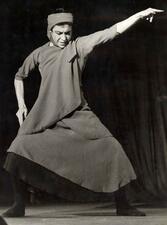
Deborah Bertonoff
From her debut at age nine through her performances in her late seventies and teaching into her late eighties, Deborah Bertonoff made dance her life’s work. Bertonoff began studying at the Bolshoi School before moving to Israel and joining the Habimah Theater. After studying dance in Europe she began choreographing, and in 1944 she founded a dance studio. She was honored with the 1991 Israel Prize.
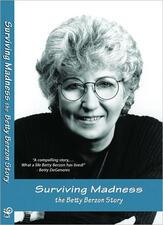
Betty Berzon
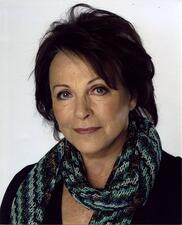
Claire Bloom
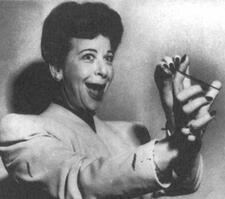
Fanny Brice
One of America’s great clowns, Fanny Brice built her career on a Yiddish accent and a flair for zany parody. Brice earned a reputation as a vaudeville star before creating some of her best-loved comedic personae for radio.
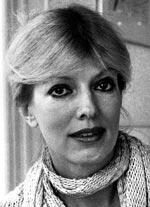
Suzanne Brøgger
Suzanne Brøgger is a Danish journalist, cultural critic, author, and essayist. With more than twenty books to her name, Brøgger has received widespread acclaim for her novels, essays, anthologies, poems, and plays.
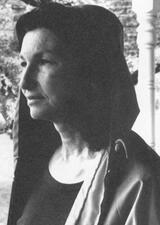
Esther M. Broner
A novelist, playwright, and ritualist, Esther M. Broner emerged on the literary scene in the early 1970s as a leading feminist writer. Her novels feature bitter, fearless, and funny characters. In other works, Broner has combined autobiography with feminist critique of Jewish tradition and created new rituals, such as her 1976 “Women’s Haggadah.”
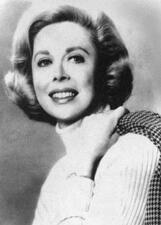
Joyce Brothers
Joyce Brothers was the second person and only woman to win the top prize on the popular television show The $64,000 Question. She became a popular psychologist and talk show host. Brothers conformed to normative understandings of 1950s womanhood but, unlike others, she gave advice about taboo topics such as sexuality and menopause.

Hortense Calisher
Hortense Calisher was a significant presence in American letters for over forty years, producing novels, short stories, and memoirs of striking originality and intelligence. Although she did not achieve popular fame, the literary community holds her in high regard and even her critics agree she is a consummate stylist.
